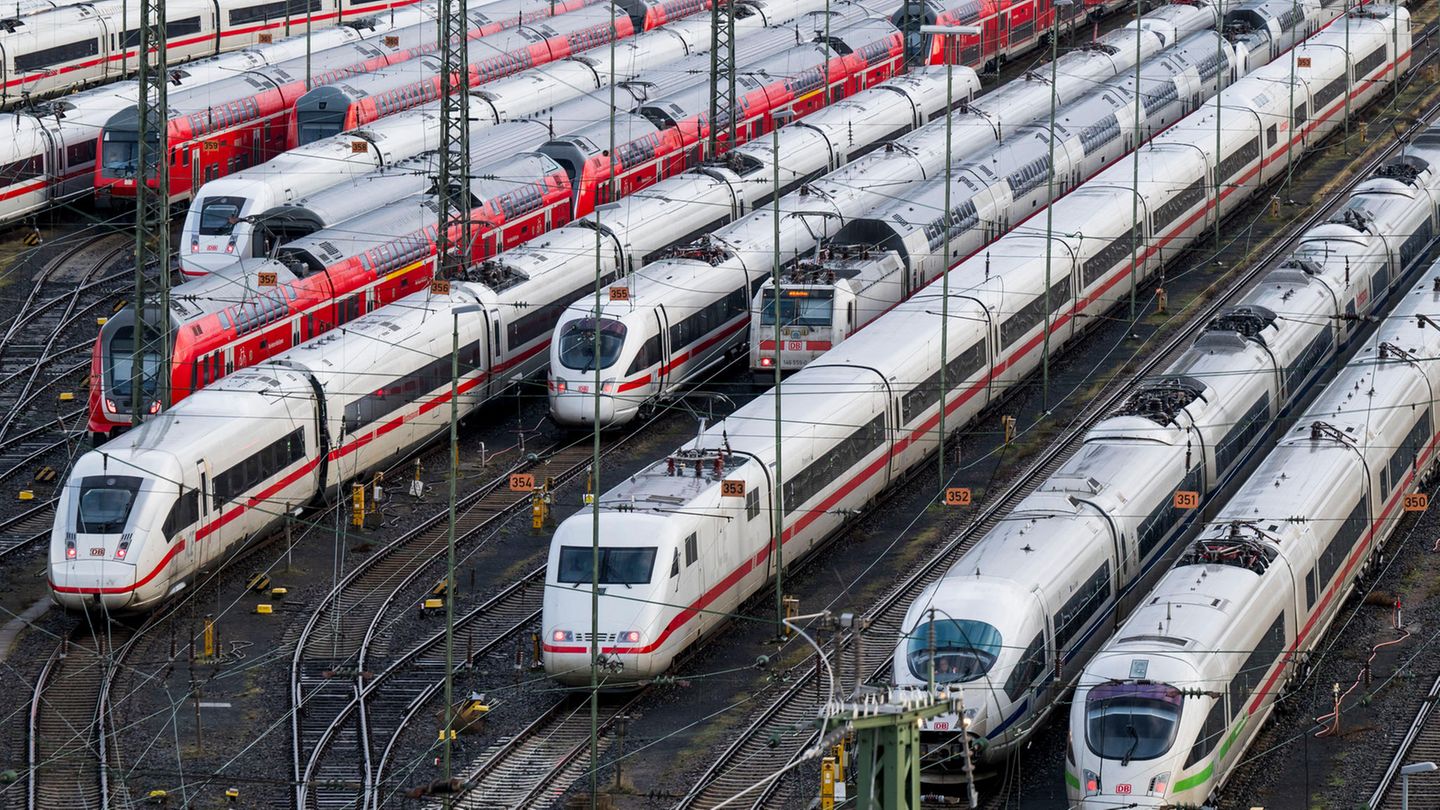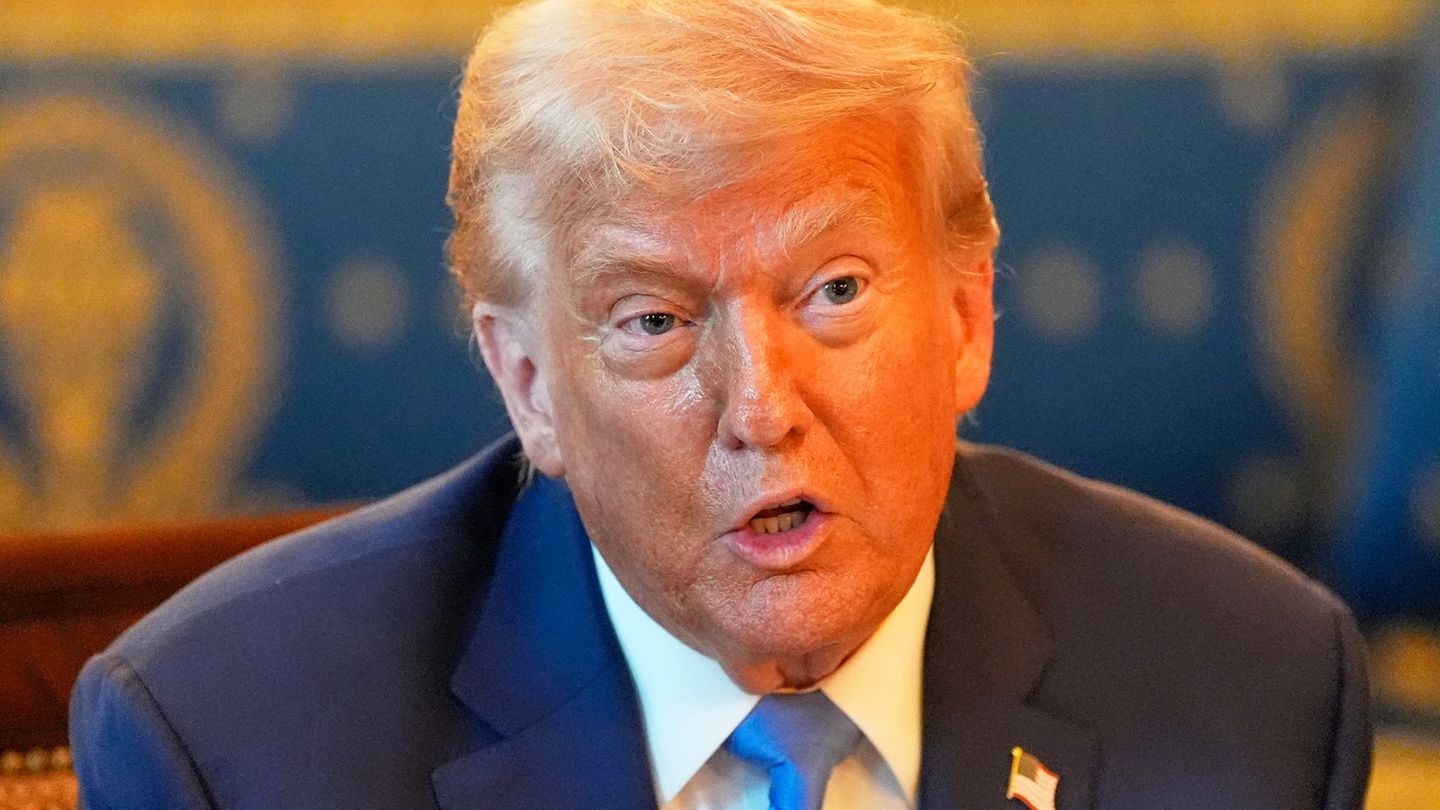The fronts between the railways and the GDL have hardened – there is no solution in sight to the tariff dispute. Experts believe that compulsory arbitration would be possible – but it must also be politically desirable.
The rail strike, scheduled to last six days until next Monday, is fueling demands in politics and business for a set of rules that will force collective bargaining partners to the negotiating table. Industrial disputes in Germany are not regulated by law. But that could be changed, say lawyers, despite the fundamental right of freedom of association in the Basic Law. “It is constitutionally possible, but politically it must be wanted,” said the director of the Institute for Labor Law at the University of Bonn, Gregor Thüsing, to the Reuters news agency.
The most important questions about a possible solution to the Bahn-GDL tariff conflict:
Who is allowed to strike?
Only a union can organize and lead a strike. And you can only strike for a demand that can be regulated in a collective agreement. Political strikes – such as those in France last year against pension policy – are therefore not permitted in Germany. A strike must be proportionate.
What is freedom of association?
The right to strike enjoys a high level of protection through the freedom of association enshrined in the Basic Law. This does not refer to political government alliances, but to the right of everyone to “form associations to protect and promote working and economic conditions.” It allows employees and employers to join together in trade unions or employers’ associations – to wage industrial action and negotiate collective agreements.
Is the GDL strike still proportionate?
In the legal sense, apparently yes. “A strike may only take place after all possibilities for communication have been exhausted,” said Clemens Höpfner, managing director of the Institute for Labor and Business Law at the University of Cologne, to Reuters. “The Federal Labor Court has been saying for many decades: It is not necessary to try arbitration before an industrial dispute. But this is controversial among lawyers.”
The labor lawyer Thüsing also points out that the strike is subject to the proviso of proportionality. “But the union itself can largely determine what is proportionate. Basically, the only thing we know for sure is that if the union has not yet negotiated, then it is not allowed to strike. Then it is certainly not proportionate.”
What is arbitration?
In some industries, employers and unions have agreements that if they cannot make progress at the negotiating table, they will attempt to reach an agreement with the help of uninvolved third parties. In spring 2023, the federal government, municipalities and Verdi went into arbitration on behalf of public sector employees. After several days of consultations with employers and unions, the arbitrators made a settlement proposal. Neither side was obliged to accept the proposal. But Verdi and the German Civil Service Association decided to approve. This ended the collective bargaining dispute.
Can arbitration be ordered?
It depends on what you mean by that. Compulsory arbitration, which would force the collective bargaining parties to accept an agreement proposal, would hardly be legally feasible. “The legal expert opinion here is quite unanimous: compulsory arbitration would not be permissible,” said Ernesto Klengel from the Hugo Sinzheimer Institute for Labor and Social Law (HSI) of the trade union-affiliated Hans Böckler Foundation.
Höpfner also sees it this way: “Our constitution prohibits compulsory arbitration in the sense that the arbitration board makes a binding arbitration award.”
It would be different if there was an obligation to at least attempt mediation. “From a constitutional point of view, there is no problem at all in creating an arbitration procedure with compulsory submission,” said Höpfner. Compulsory submission means that those involved must agree to an attempt at mediation if only one of the collective bargaining parties wants mediation. However, you are not forced to accept the arbitration result.
Does arbitration prevent a strike?
Not necessarily, but the chance exists. Thüsing advocates for a labor dispute law that prescribes a compulsory attempt at arbitration in areas of critical infrastructure such as railways or hospitals: “At the end of this there is the acceptance of the award or the industrial dispute. This is not an interference with the freedom of association, but rather an embodiment of the fundamental right based on interests the public is considerate.” So there could still be strikes.
But a union wouldn’t have an easy time of it, Thüsing admits: “You’re striking against an arbitrator’s decision that the public will say we think is appropriate. That actually puts a lot of pressure on you.”
How successful are arbitrations?
“Arbitration can help,” said Hagen Lesch, a collective bargaining expert at the employer-related German Economic Institute (IW), to Reuters. “We have had 46 arbitrations in our tariff database since 2000 in the 20 industries we monitor. Of these, 34 were successful. They are particularly helpful if they are used at an early stage.”
Would compulsory arbitration be politically enforceable?
IW economist Lesch is convinced: “Mandatory arbitration would strengthen the idea of the ultima ratio, i.e. strike as a last resort. It does not interfere with the right to strike because a strike can still take place after arbitration.” Thüsing is skeptical: “It takes courage. You take on trade unions, employers and the public.”
Can courts ban strikes?
Basically yes, but only within a narrow framework. “The only option that employers have today, according to current case law, to have labor disputes assessed as inadmissible are formal errors,” said Höpfner. “For example, if the union does not comply with the peace obligation or if it makes demands that cannot be regulated in the collective agreement. But in the case of a forced strike after the strike vote, there is no limit as to the scope and duration of strikes.”
Source: Stern




